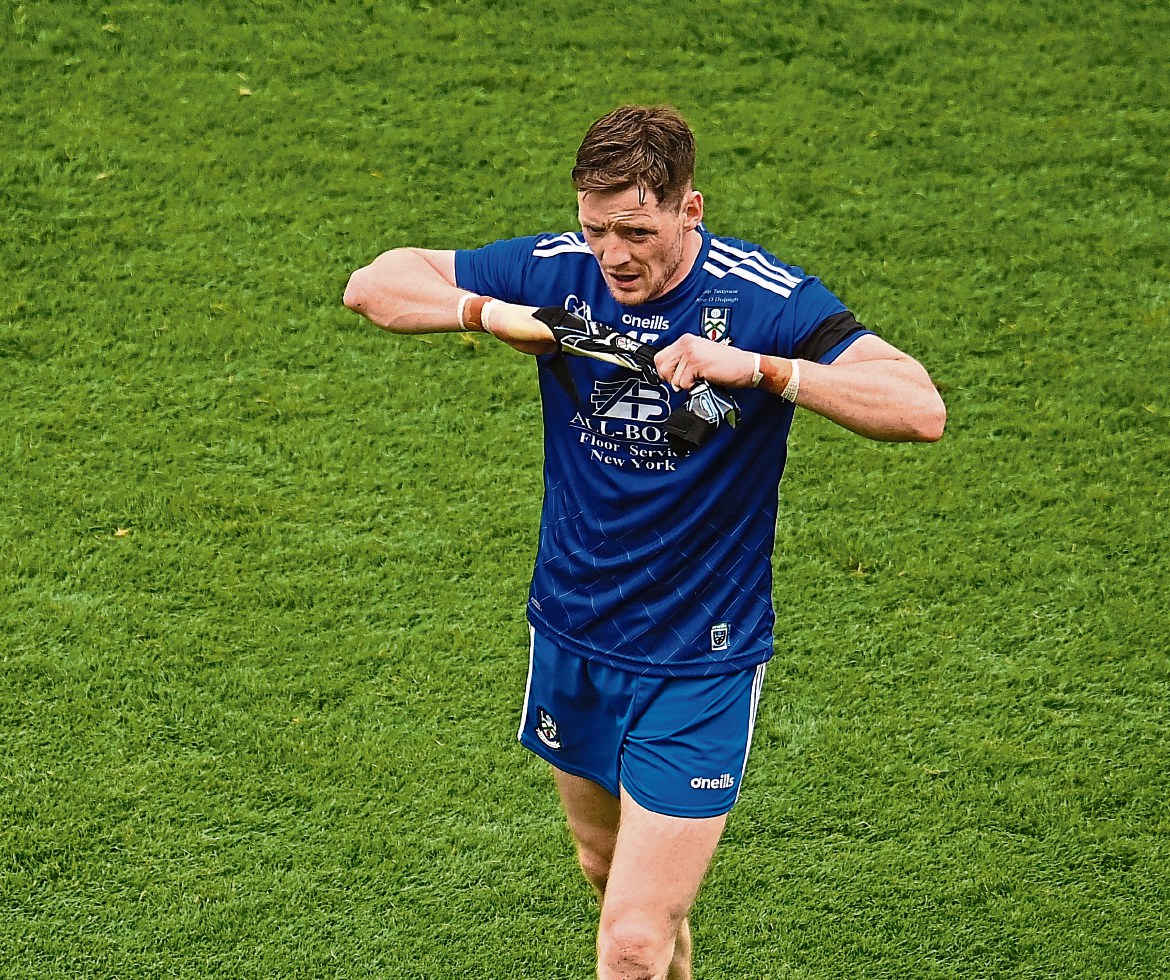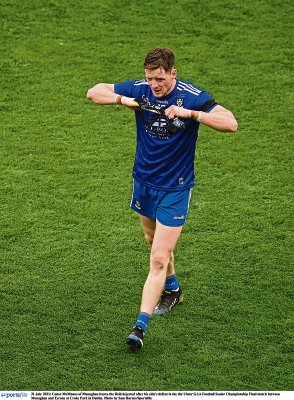The slow deflation of the Proposal B balloon was an inevitable, as it was prolonged. Eventually some kind of change will happen to the football championship, but from a welfare point of view it appears patently obvious to me that neither Proposal A nor B nor any other potential idea will fix the problem that the main person in all of this, the player, is but a sideshow. Irrelevant.
Player welfare is bandied about a lot, but the necessary steps to protect this are too slow. All the talk over the last few weeks was of structures, finances, schedules. Not of enjoyment, participation or retention.
The slogan Where We All Belong sounds more hollow with every passing year. We’re now at the point where players are asking themselves why they bother. There’s a school of thought that these people won’t leave. They will. It was already happening. The pandemic slowed down the haemorrhage as there was nowhere to go. The world is reopening, and our young athletes are going to go where they’ll be listened to and will enjoy their game. They’ll be playing actual games for a start. No weeks upon weeks of training. No drink bans. Places and sports where administrators take their opinions and needs on board. Everyone can see this, except the people entrusted to develop the game.
Amidst all the hand-wringing and opinions online, in papers and on the radio over the weekend, I noticed a tweet by Monaghan talisman Conor McManus: “Never mind plan B – put minor back to u18.”
The tweet yielded quite a response. Reply after reply lamenting the loss of minor football. Apparently one of the reasons why minor football was scrapped, and a new u17 grade was created, was due to time pressures due to school or college sports and exams. Against all evidence that participation in sport is good for our mental and physical health.
The world over, sport psychologists regularly implore parents and teenagers to not quit sport to focus on exams. It’s counterproductive. We know the mental health benefits of physical activity instead of storing up all that pressure and stress, unreleased in a study or bedroom. We have now created a situation where too many young men will stop kicking a football at the age of 17. They’ll lose that opportunity for physical or psychological development. Or they might go on to kicking another type of football.
The leap from u17 football to the next grade, or even senior football is too large. They’re not strong enough for adult football. They could get seriously hurt. Or spend a long time warming a bench. Years. Disheartening at best. At worst, it cuts off their one good mental health valve. It is this issue, and others like it that needs airing and discussion.
There’s a culture within the GAA where we feel the need to suffer for our art. Younger people aren’t willing to put up with this. They aren’t going to stick around for a ‘sport’ that involves hard slogs at training, being given out to, and aren’t allowed to go out with their friends for fear they’re seen taking a drink. We then wonder why incidents happen where young men are banned from socialising and they’re let out for one night and they end up inebriated, or worse.
We’re stunting the sporting and social development of young men by cutting them adrift at 17, or by ordering boys to play by outdated men’s rules. Player retention isn’t just a club problem. Every year, we lose talented county players. They barely make a ripple as they from the ‘so-called weaker counties.’ Nobody is asking why. Until someone like former Footballer of the Year Jack McCaffrey walks away. People become even more surprised when he reveals that he just wasn’t enjoying it anymore. How could he not? He had everything. Except joy.
We’ve heard from enough former All Ireland medallists about the toll playing for their county took on their bodies and their mental health. Things aren’t changing fast enough for our players, from players of the year to teenagers who just want to kick a ball. We keep flogging them until they falter, break or leave and then do the same thing to the next generation.
This is the big issue the GAA must find an answer to. Not structures, not money. Fun. Enjoyment. Perhaps if those delegates voting down proposals viewed these changes as ways to drive player retention, while promoting safe psychological practices, the organisation would be very different. We’d certainly have fewer damaged people, and more talent to choose from.
Managers have already gone on the record saying they’ve struggled to get the best players to commit. No new proposed structure will change this, unless they intend to facilitate player experience as well.
No more than Conor McManus’s minor football compatriots, nothing much seems to be said or thought about when it comes to the welfare of the lads actually playing the game.
Receive quality journalism wherever you are, on any device. Keep up to date from the comfort of your own home with a digital subscription.
Any time | Any place | Anywhere













